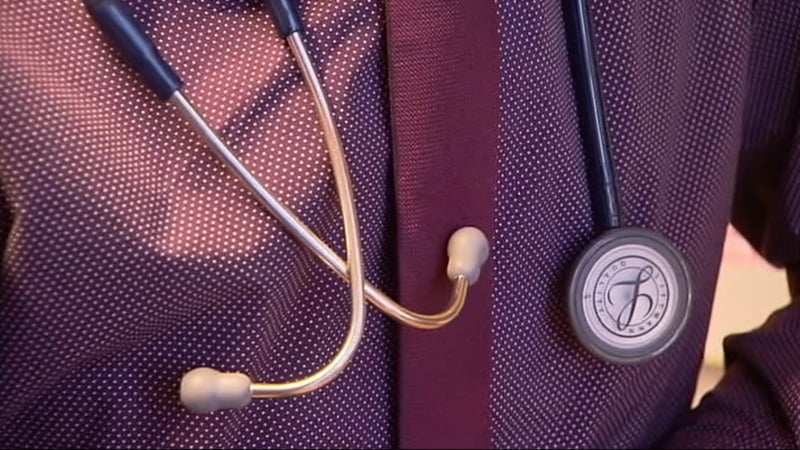Lucy Cheke and her colleagues at the University of Cambridge recently invited a few participants into her laboratory for a kind of ‘treasure hunt’.
The participants navigated a virtual environment on a computer screen, dropping off various objects along their way. They then answered a series of questions to test their memory of the task, such as where they had hidden a particular object.
When examining what might have influenced their performance, you might expect that Cheke would have been more concerned with the participant’s IQ – not their waistline. Yet she found a clear relationship between their Body Mass Index – a measure of your weight relative to your height – and
apparent memory deficits: the higher a participant’s BMI, the worse they performed on the Treasure Hunt task.
In doing so, Cheke has contributed to a small but growing body of evidence showing that obesity is linked to brain shrinkage and memory deficits. This research suggests that obesity may contribute to the development of neurodegenerative conditions such as Alzheimer’s Disease.
Surprisingly, it also seems to show that the relationship between obesity and memory is a two-way street: being overweight or obese not only impacts on memory function, but may also affect future eating behaviour by altering our recollections of previous eating experiences.
Cheke’s interest in the subject began unexpectedly. “At the time I was looking at the ability to imagine a future state, particularly in terms of making decisions about food,” says Cheke. “If you’re hungry, you’ll imagine your future self as being hungry, too, but obese people seem to make such decisions on fact-based judgements rather than imagining.”
One possibility was that the obesity might have been damaging their capacity for “mental time travel”. Scientific research has long shown that memory and imagination are intimately linked, as we piece together fragments of past recollections to predict how future events might pan out.
The link made sense, she says, with some signs that obesity affects areas of the brain known to be used in memory and imagination. In 2010, for instance, researchers at Boston University School of Medicine reported that healthy, middle-aged adults with increased abdominal fat tend to have slightly
lower overall brain volume. In particular, the hippocampus, a deep brain structure sometimes called the brain’s printing press thanks to its role learning and memory, was significantly smaller in obese people compared to leaner individuals.
There were also some hints from animal studies. “In studies focusing on weight changes and eating behaviours in rodents, the animals were terrible at learning tasks such as the Morris water maze,” explains Cheke. “The more I looked into it, the more I expected to see memory deficits, but that question was still very much open.”
Hence her experiment with the treasure hunt. Sure enough the obese participants found it particularly difficult to remember the location of the different objects – adding some important evidence for her hypothesis, and supporting
earlier findings that indirectly linked obesity to impairments of cognitive function.

Overeating may cause long-term changes to the
brain, damaging our recall
More recently, a brain scanning study including more than 500 participants confirmed that being overweight or obese is associated with a greater degree of age-related brain degeneration. These effects were biggest in middle-aged people, in whom the obesity-related changes corresponded to
an estimated increase in 'brain age' of 10 years.
Obesity is a complex condition with many contributing factors, however; so exactly how it might affect brain structure and function is still unclear.
“Body fat is the defining feature of obesity, but you’ve also got things like insulin resistance, hypertension, and high blood pressure,” says Cheke. “These can go hand in hand with behavioural factors [such as overeating and lack of exercise] and they can all potentially cause changes in the brain.”
“For example, insulin is an important neurotransmitter, and there’s a lot of evidence that
diabetes is associated with changes in learning and memory,” she adds, “but there’s also evidence that high body fat on its own leads to inflammation in the brain, which can also cause problems.”
Inflammation is another potential culprit. Psychologists from the University of Arizona examined data from more than 20,000 participants in the
English Longitudinal Ageing Study, in which measures of memory, BMI, and blood plasma levels of an inflammatory marker called C-reactive protein were collected every 2 years between 1998 and 2013.
They found that greater body mass was associated with a decline in memory function, and also with higher levels of the inflammatory protein. Although these links are indirect, the results suggest that brain inflammation is one plausible mechanism by which differences in
body mass might influence cognitive function in otherwise healthy, aging adults.
Two-way Street
This should be of particular concern, given recent evidence that the path between memory and obesity may go both ways, as attention and memory control our appetite and eating behaviour. In other words, a deficit in your memory could cause you to gain weight.
Early evidence that memory plays an important role in eating behaviour came from a 1998 study showing that
patients with severe amnesia will readily eat multiple meals one after the other, because they could not remember that they had just eaten.
“This shows that when we’re deciding how much to eat we’re not just basing those decisions on physiological signals about how much food there is in our stomach, but also on cognitive processes like memory,” says experimental psychologist
Eric Robinson of the
University of Liverpool.
“If your memory’s impaired or just not very good then you might overeat,” he adds. “I wanted to know if this could be reversed. If you improve a person’s memory, could that be a useful way of getting them to eat less?”















 Located at - 617 LOG
Located at - 617 LOG
